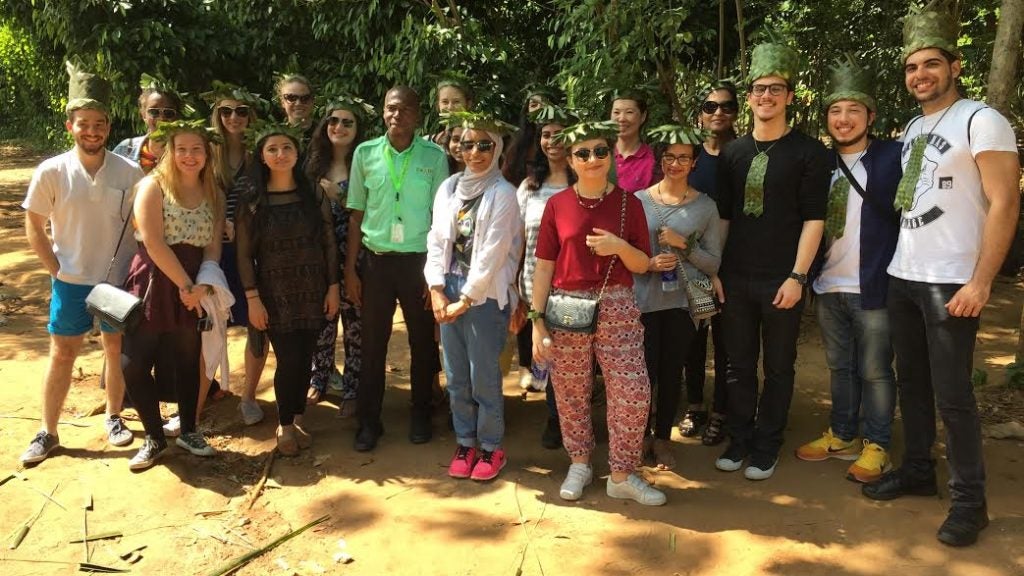Georgetown students travel to study the living memory of Zanzibar’s 1964 revolution

Fourteen Georgetown University in Qatar (GU-Q) students have recently returned from a rigorous 10 day trip to Oman and Zanzibar. The students, who are enrolled in the university’s Zones of Conflict, Zones of Peace (ZCZP) program, explored the history, politics, and reconciliation efforts that continue even today in the wake of the 1964 revolution in Zanzibar.
In each of the destination countries, students—accompanied by a faculty member, a researcher and three GU-Q staff members—met with key actors, including politicians, journalists, community organizers, and other change-makers, to understand their perspectives of the ethnic conflict.
“Omanis had been living in Zanzibar for about 150 years before the revolution. Through the ZCZP program, which focuses on studying a specific conflict then learning about how a society rebuilds afterwards, we took our students to Muscat to meet people who grew up in Zanzibar before moving to Oman. We also went to Zanzibar to meet Arabs who stayed following the revolution,” said Jacqui Snell, GU-Q’s educational enrichment manager and program organizer. “These meetings and visits spurred students to contemplate whether the conflict was a genocide or revolution, and to learn how genocide is constructed and labeled in the international community.”
Preparation for the trip began with 25 hours of in-depth class work led by an expert on the Indian Ocean, Dr. Rogaia Abusharaf, associate professor of anthropology at GU-Q. For participating junior, Mariam Diefallah (SFS-Q ’17), the ZCZP program was an eye opening experience. “I think very few people are given the opportunity to see and verify for themselves the knowledge they gain from books and articles. I gained a lot of knowledge on a conflict that very few people know about. This knowledge was enriched during the trip as we met scholars, academics as well as survivors, which gave the conflict a human aspect added to the academic one. This is why I think the Zones program is essential for students,” she explained.
Further leveraging the benefits of Georgetown’s top tier faculty base, the ZCZP program now asks faculty members to propose locations and conflicts to study. “This was the second time our faculty proposed a topic, which is really great because it means they bring valuable expertise to the program,” said Snell.
In 1698, Zanzibar became part of the overseas holdings of Oman under the control of the Sultan of Oman. Following centuries of control by various empires, Oman’s monarchical rule was overthrown in January 1964. The island became a part of Tanzania following an uprising that saw several thousand unarmed ethnic Arab and Indian civilians killed and thousands more arrested or expelled from the country.
Since 2008, GU-Q has been taking students to zones of ethnic, political, social, and religious conflict, with the goal of better understanding both the causes of conflict, and the difficult process of reconciliation through the ZCZP program. Past destinations have included Rwanda, Germany and Poland, Northern Ireland, East Timor Cambodia, Cyprus, South Africa, Bosnia and Herzegovina, the USA and more.